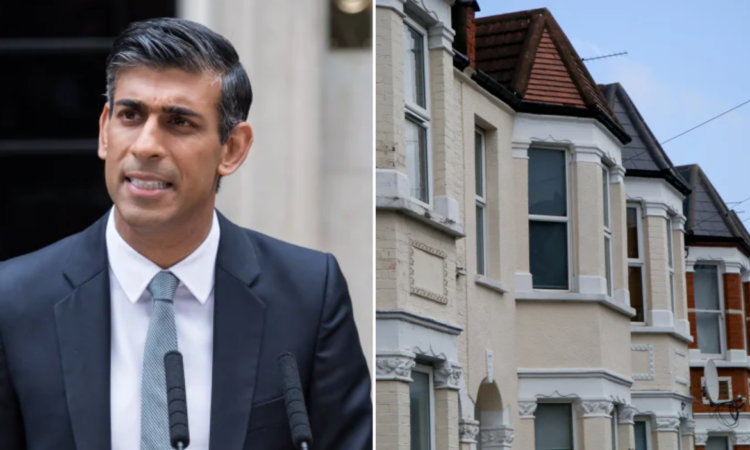Rishi Sunak becoming PM hailed as ‘good news’ for homeowners as lenders offer reduced fixed-rate mortgages

Rishi Sunak’s appointment as Prime Minister has been hailed as “good news” for homeowners as major lenders reduced the cost of their fixed-rate mortgage offers.
HSBC has reduced rates on some of its fixed-rate mortgages by up to 0.11 per cent and up to 0.22 on tracker mortgages, while Accord Mortgages has lowered select rates, including those which target first-time buyers, by up to 0.53 per cent.
Virgin Money has also cut rates, with the lowest at 5.49 per cent based on a five-year fixed rate for a buyer with a 25 per cent deposit, paying a £1,295 fee.
The reduction in rates comes after they spiked and lenders pulled products following last month’s mini-Budget.
Adrian Anderson, of mortgage brokerage Anderson Harris, said it appeared there was more stability since it became clear Mr Sunak would replace Liz Truss.
“HSBC reduced their rates yesterday, Santander reduced some of their fixed rates today, and so have Accord. Three well-known mortgage lenders in the last 24 hours have actually reduced their fixed-rate mortgage offering, so this is good news.
“Obviously, we’re still anticipating the Bank of England base rates to continue to increase because the country is still grappling with inflation. However, a lot of the fixed-rate mortgage pricing that we are currently seeing has already factored in a lot of increases.”
Mr Anderson said the economic situation the new Prime Minister had inherited meant it was not going to be an easy role for him, and there were definitely going to be some bumps in the road going forward.
“I would say the markets reacted well, and the markets are seeking somebody they feel could give some stability.”
He added that the new Prime Minister could also improve the confidence of prospective homeowners.
“For people looking to purchase a property, a lot of their decision to buy somewhere quite often is also based on their confidence levels – as to what might be happening in the markets and what might happen in the future – and with someone like Rishi, I think it will give buyers more confidence to want to purchase.”
On Tuesday, the pound rose to its highest level against the dollar since before the former prime minister, Ms Truss, announced drastic tax-cutting measures.
Gilt yields – interest rates on UK government debt – have also gone back down to the levels they were at before the mini-Budget.
Jeremy Hunt, who scrapped nearly all of the tax cuts announced by his predecessor, Kwasi Kwarteng, will remain in position as Chancellor in Mr Sunak’s Cabinet.
Experts believe both the change in leadership and Mr Hunt remaining in post will help restore market confidence.
Danni Hewson, financial analyst at AJ Bell, told LBC News: “The markets have reacted really quite positively to not only the news that Rishi Sunak is now Prime Minister but also the fact that he is keeping Jeremy Hunt on as Chancellor.”
Ms Hewston added: “Investors do feel more confident in the direction of travel even if there are going to be more difficult decisions ahead.”
What should you do if you’re trying to get a mortgage now?
- Anybody trying to get a mortgage should be speaking to somebody who’s independent, says Adrian Anderson. “That independent person will be able to assess their requirements and advise that person appropriately based on their circumstances.”
- Consider all the various types of mortgage deals: “People still will be considering fixed rates and some people will be considering variable tracker rates… in terms of the fixed rates, I wouldn’t be surprised if they if they start to come down a bit, which I think will be good news for anybody who’s seeking a fixed-rate mortgage.”
- Decide whether a longer-term mortgage is best for you: “To help keep the payments down, [some people] are now considering longer-term mortgages (35 years rather than 25 years). We should point out that the advantage is that your monthly payments are less to begin with. But the disadvantage is the longer your mortgage is in place for, the more interest you’ll end up paying.”






